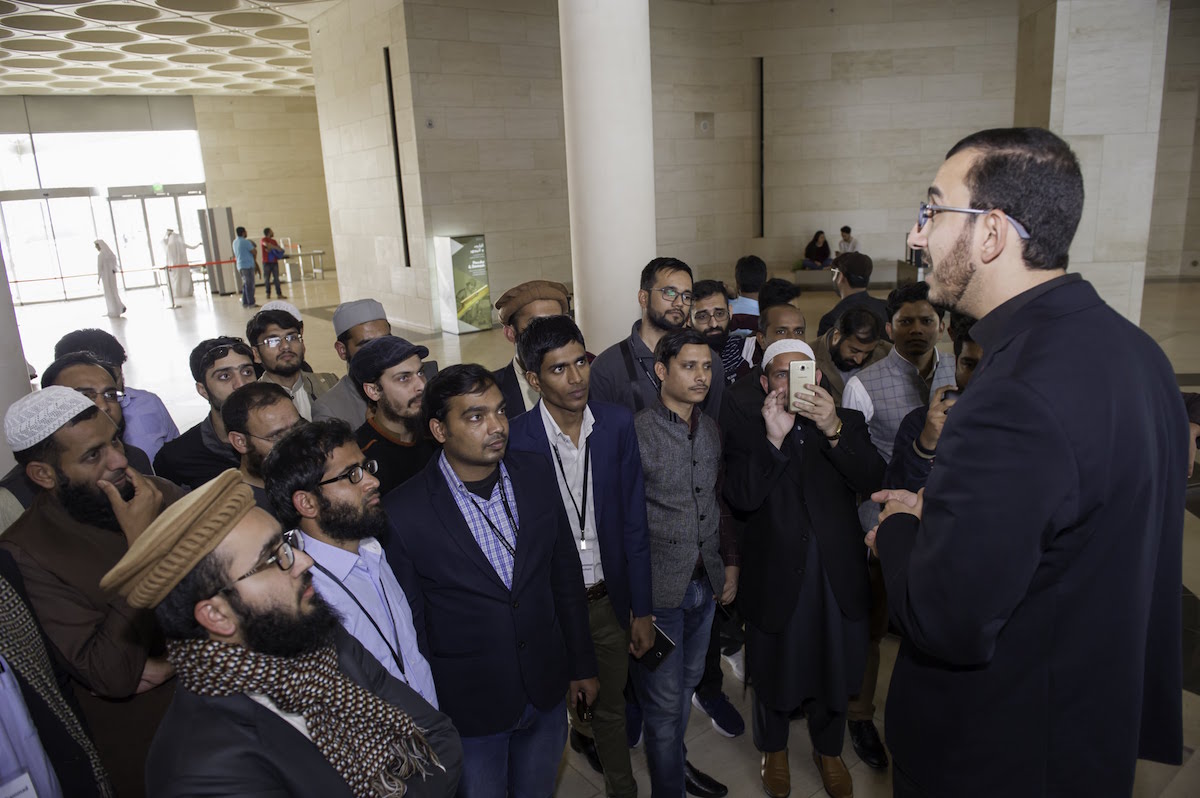
The Madrasa Discourses Curriculum
The three-year project to advance scientific and theological literacy in madrasa discourses in India and Pakistan equips a select group of graduates from traditional madrasas in both countries with concepts and tools to engage in academic discourses around science and theology in the 21st century. In order to attain the goals of the project, an essential prerequisite is historical literacy, without which critical textual study in an academic context is not possible. Historical literacy is the ability to apply a critical lens to artifacts, texts, or reports that inform us of the past. The “multiple literacies” in history, science, and theology that the project is concerned with shall be acquired by reading texts that are central to the Islamic scholarly tradition with new and provocative questions that will help guide students from the familiar to the unfamiliar.
The first year introduces students to religious and cultural pluralism: human beings across the world have different explanations of where we came from, how we should live, and what our ultimate purpose is. We explore traditional Islamic theological approaches for dealing with pluralism, bringing these approaches into conversation with contemporary perspectives from both the scientific and humanistic disciplines. An engagement with the classical tradition in this manner opens the window into a contested dialectic intellectual history within Islam in which a broad normative consensus was eventually established through a conversation that was influenced and mediated by foreign ideas. Indeed, the following question is central to our inquiry in the program’s first year: if the Islamic tradition emerged from deep engagement with intellectual currents that have their origin outside of Islam, why should that tradition then not continue to engage intellectual trends that remain active outside its borders? More deeply, what is it that really divides one culture from another, and, in an increasingly interconnected and globalized world, are traditional divisions still tenable?
Year two initiates a study of contemporary science and philosophy. Special attention is given to those aspects that lie at the fault lines with madrasa discourses on the nature of knowledge, the structure of the universe, and the place of human beings in the cosmos. The third year surveys recent Muslim attempts to engage modern thought, focusing especially on scholars of South Asia, and invites students to make their own creative contributions. In addition to online learning modules and lesson plans throughout the course of study, intensive summer programs bring students together to discuss case studies, work on analytical projects, embark on field experiences, and learn from an array of experts from different faiths and disciplines.
Envisioned as a course moving from history to science to theology (or past to present to future), the program hopes to engender creative thinking among the students whereby they begin to see their own tradition as part of a larger human and intercivilizational conversation around great questions on the origin and purpose of life. They will perceive tradition as something that is constructed in history by independent thinkers who used the most advanced intellectual tools at their disposal to interpret scripture in light of contemporary ideas, philosophies, and worldviews. By the end of the course, students will be on their way to thinking creatively in order to articulate Islamic thought using terms and concepts relevant to contemporary intellectual currents and modern global concerns.
Under Development: Free Online Curriculum
We look forward to sharing the wealth of learning module videos, presentations, and carefully curated materials we have created and gathered for Madrasa Discourses on a free online platform soon!
